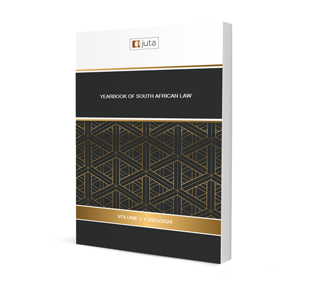Labour and Employment Law

Labour and Employment Law
Author John Grogan
ISBN: 978 148515 163 0
Affiliations: BA (Hons) (Rhodes) B Iuris LLB (SA) LLM PhD (Rhodes); Advocate of the High Court of SA and former Head and Dean of the Faculty of Law, Rhodes University
Source: Yearbook of South African Law, Volume 5, p. 678 – 788